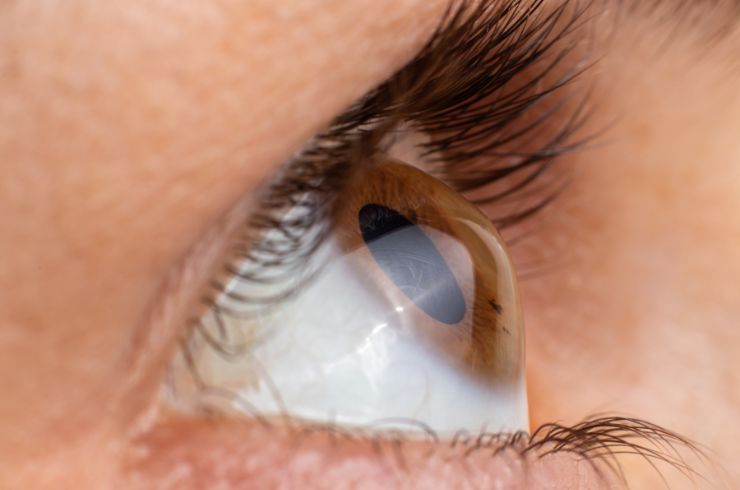
The cornea is the eye’s clear, transparent front surface, covering the iris (the colored part of the eye) and the pupil (the dark central structure). It plays a vital role in the visual system by serving as a protective outer layer and assisting in focusing light as it enters the eye. A healthy cornea is essential for clear vision, as it refracts light and helps it to be properly focused on the retina.
Description and Significance
Corneal disorders can impair the clear front surface of the eye, leading to vision problems. Our clinic employs advanced diagnostic tools, such as corneal topography and pachymetry, to accurately assess corneal health and guide treatment. We offer specialized treatments including penetrating keratoplasty (PK), Descemet Membrane Endothelial Keratoplasty (DMEK), and Phototherapeutic Keratectomy (PTK) to restore corneal integrity and improve vision. Accurate corneal measurements are crucial for tailoring customized treatment plans, while DMEK ensures rapid visual recovery in cases of endothelial dysfunction, and PTK addresses superficial corneal irregularities and opacities.
Highlights and Unique Hospital Features
Our specialists are highly skilled in managing a broad spectrum of corneal conditions. We integrate state-of-the-art corneal imaging technology to ensure precise treatment planning. Our hospital features advanced techniques such as specialized corneal transplant methods like DMEK, known for optimal outcomes and minimal recovery time. We also utilize topographic-guided laser procedures for accurate corneal reshaping and offer innovative treatments such as PTK to address various corneal irregularities and opacities. By combining expert care with cutting-edge technology, we are committed to delivering the best possible outcomes for our patients.
The cornea is the clear, dome-shaped front surface of the eye. It plays a crucial role in focusing light into the eye and protecting the inner structures.
Common corneal conditions include keratitis, keratoconus, corneal dystrophies, and corneal abrasions. Symptoms may include pain, redness, blurred vision, sensitivity to light, and foreign body sensation.
Refractive errors related to the cornea can often be corrected with glasses or contact lenses. For those seeking a more permanent solution, procedures like LASIK or PRK may be considered after a thorough evaluation.
Some corneal conditions may have a genetic component. If there is a family history of corneal disorders, it’s important to inform your eye care provider, who can determine if screening is necessary.
Keratoconus is a condition where the cornea thins and bulges outward, causing vision distortion. Treatment options may include special contact lenses, collagen cross-linking, or in severe cases, corneal transplant surgery.
Treatment for a corneal abrasion may include antibiotic eye drops or ointments to prevent infection, and lubricating eye drops to promote healing. In some cases, a protective eye patch or contact lens may be used.
Eating a balanced diet rich in vitamins and antioxidants can support overall eye health, including the cornea. Avoiding smoking and protecting the eyes from UV exposure are also important for corneal well-being.
There have been significant advancements in corneal treatments, including new surgical techniques and technologies for conditions like keratoconus. It’s important to discuss the latest options with your corneal specialist.